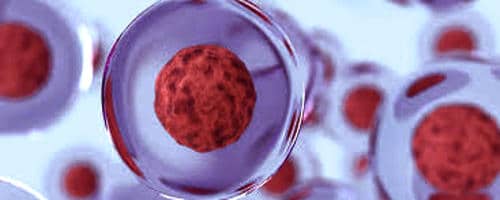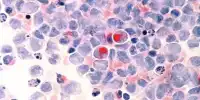Inflammatory gene helps to control Obesity Risk
A gene that helps to control inflammation increases the risk of obesity and could be turned off in mice to stop weight gain, a study has found. A gene linked to inflammation, known as RIPK1 may also play a role in obesity, according to research led by an Aussie, which found that by turning the gene off in mice, they could dramatically cut the animals’ fat levels, total body weight, and improve their insulin sensitivity. Obesity is known to increase the risk of other health problems, including heart disease, diabetes, arthritis, high blood pressure, and some cancers. A gene that helps to control inflammation increases the risk of obesity and could be turned off in mice to stop weight gain, a study from The University of Queensland has found.
Dr. Karunakaran said she was determined to unravel the links between inflammation and obesity that went deeper than excessive eating or lack of exercise. “We found small changes in the inflammatory gene RIPK1 in the obese people, and these variations caused an increased amount of the gene being present in their fat tissue, increasing their risk of being obese,” Dr. Karunakaran said.
The researchers say these findings show that RIPK1 is genetically associated with obesity and that it could be a potential therapeutic target to address obesity and related diseases. “RIPK1 is essential for a healthy immune response, but it also causes hyper-inflammation when it ‘goes rogue’. “By finding an increased amount of inflammation in obese people, we can confidently say that obesity increases inflammation.” The researchers then looked at the effect of turning the inflammatory gene on and off in mice.

Gene that controls inflammation increases the risk of obesity
Without the gene, the mice remained at a normal weight despite eating a high-fat diet and their risk of diabetes was reduced. For years, scientists have understood that obesity causes inflammation, but this is the first time that they’ve proven the reverse is also true: that a gene involved in inflammation causes obesity.
The mice with a normal level of the inflammatory gene put on weight from eating the same high-fat diet. More than half the 2000 participants were extremely obese with an average Body Max Index of 41 and a half were a healthy weight. Scientists found that people with mutant copies of the gene that expressed RIPK1 were more likely to be obese.
Dr. Karunakaran said that when stores exceeded healthy levels, the fat tissue became overwhelmed, cells died and the immune system was activated. “In obesity, the immune cells are working in overdrive, causing damaging inflammation when they don’t switch off,” she said. “By understanding more about these inflammation pathways, we can find ways to intervene to treat obesity, especially in specific groups of people. “These variations in the RIPK1 gene only occur in 8 to 12 percent of the population — so maybe these are the people who struggle to lose weight despite doing all the right things.” The study, recently published in the journal Nature Metabolism, established that elevated levels of the molecule RIPK1 – it plays a role in driving inflammation in the body – predispose people to obesity.















